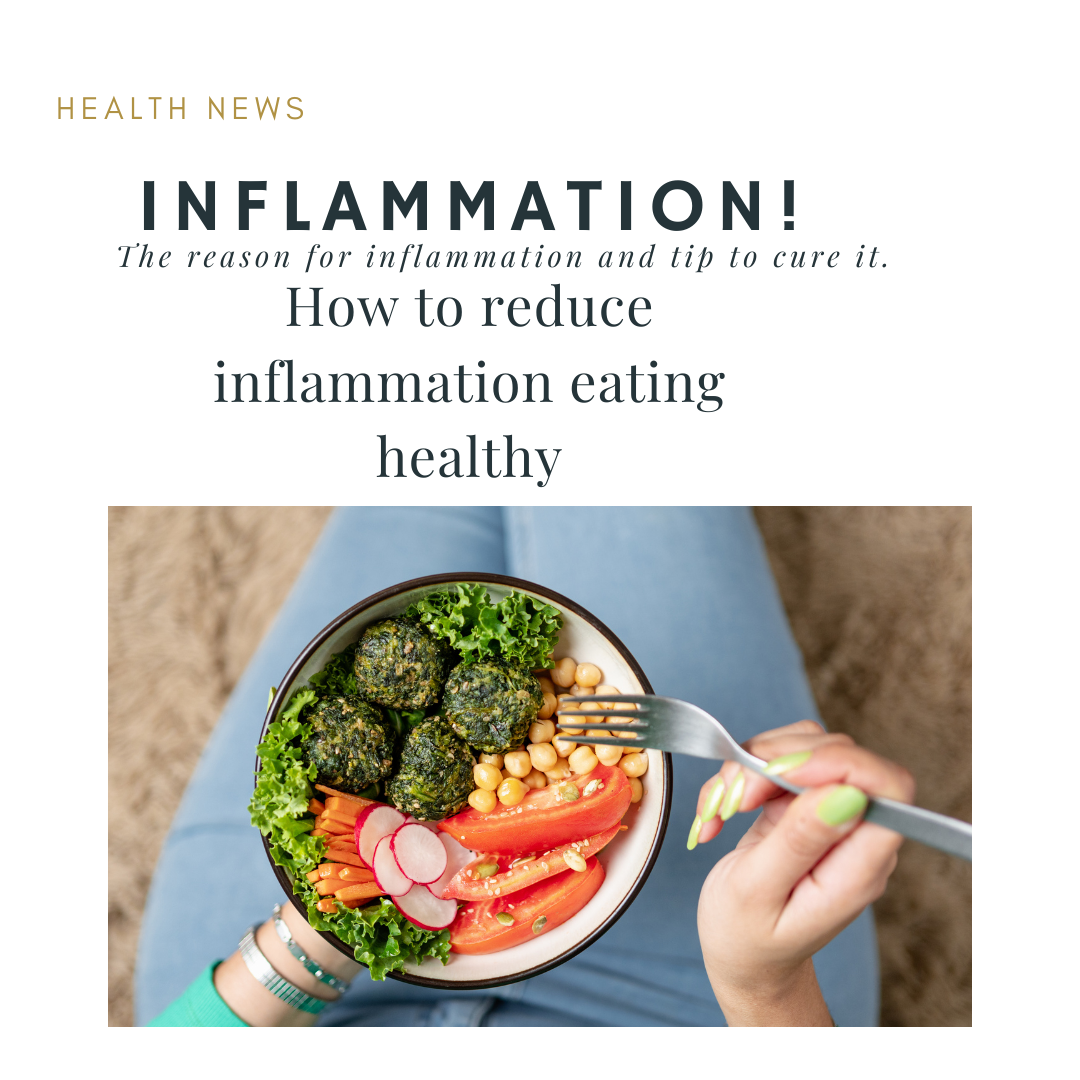WHAT IS INFLAMMATION
Inflammation is a protective mechanism our body responds to when it’s trying to clear up an infection, repair tissues or even heal itself from an injury. When your body is invaded by a virus, your defense systems (immune system) sends out its first responders. These are inflammatory cells and cytokines. These cells bgin to inflam to trap the germs/toxins and start healing the injured tissue. Normal signs of inflammation is mild, and the pain shouldn't be extreme.
TYPES OF INFLAMMATION
There are two types of inflammation, chronic and acute. Acute inflammation is a rapid onset and resolution, such as a sprained wrist or ankle. When you sprain your wrist the first response your body will do to recovery is inflammation. The inflammatory receptors will increase blood flow to help the immune cells to the infected site so the body can clear the infection.
Chronic inflammation is more persistent and last much longer. Chronic inflammation can onset for months or even years. It follows acute inflammation structures however, when an infection is too difficult to clear, it can take much longer for the body to heal itself, so inflammation sits around the infection. This process is what I see in many cases of chronic and severe dis-eases. If inflammation sticks around too long, it may cause damages to the body, scarring tissues and overall dysfunction. Some conditions that are associated with chronic inflammation are:
Chronic inflammation is involved in the disease process of many conditions, including:
- Autoimmune diseases, like lupus, rheumatoid arthritis (RA), psoriasis and ankylosing spondylitis (AS).
- Cardiovascular diseases, such as heart disease and high blood pressure.
- Certain cancers.
- Gastrointestinal diseases, like Crohn’s disease and inflammatory bowel disease.
- Lung diseases, like asthma and chronic obstructive pulmonary disease (COPD).
- Mental health conditions, such as depression and anxiety.
- Metabolic diseases, like Type 2 diabetes.
- Neurodegenerative diseases, such as Alzheimer’s disease and Parkinson’s disease.
CAUSE OF INFLAMMATION
There are a number of causes to inflammation. One factor is too much mucous in the body caused by unprocessed foods, dairy, starch and carbohydrates. Exposure to toxins is also a culprit in cases of chronic inflammation. Common causes are:
- Low levels of physical activity.
- Chronic stress.
- Having a BMI at or above 30 (obesity), especially when excess weight is deep within your belly (visceral fat).
- An imbalance of healthy and unhealthy microbes in your gut (dysbiosis).
- Regularly eating foods that cause inflammation, such as foods high in trans fat or salt, dairy and carbs.
- Disrupted sleep and circadian rhythm.
- Exposure to toxins, including air pollution, hazardous waste and industrial chemicals.
- Using tobacco products.
- Regularly drinking too much alcohol.
HOW TO REDUCE INFLAMMATION IN THE BODY FAST
Start by avoiding toxic chemicals such as bleach, bleach sanitary napkins/tampons for women, wearing clothes that is more cotton. Start resting that part of the body that is infected. Inflammation is the culprit to many chronic dis-eases and dieting plays a major role in healing. In 2013 systematic review a study of 46 individuals tested their blood levels of an inflammation marker called C-reactive protein (CRP). It's often used by doctors to get a sense of inflammation levels in the body and to help determine the risk of cardiovascular problems. Therapies in Medicine put over 600 people on whole food, plant-based diet and saw their CRP levels plummet, along with their cholesterol, blood pressure and BMI. Whole plant foods are loaded with phytonutrients which helps fight inflammation. Animal products are high in fats and causes inflammation, whereas plant-based food is lower in toxins. Animal products are a breeding ground for bacteria and pro-inflammatory toxins. Choosing to change your diet to plant-based, you will reduce the number of bacteria, pollutants and other pro-inflammatory components in your body and increasing vitamins and phytonutrients your body is supposed to have.

